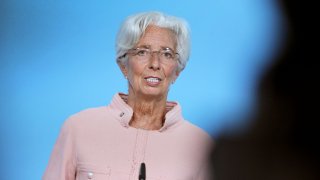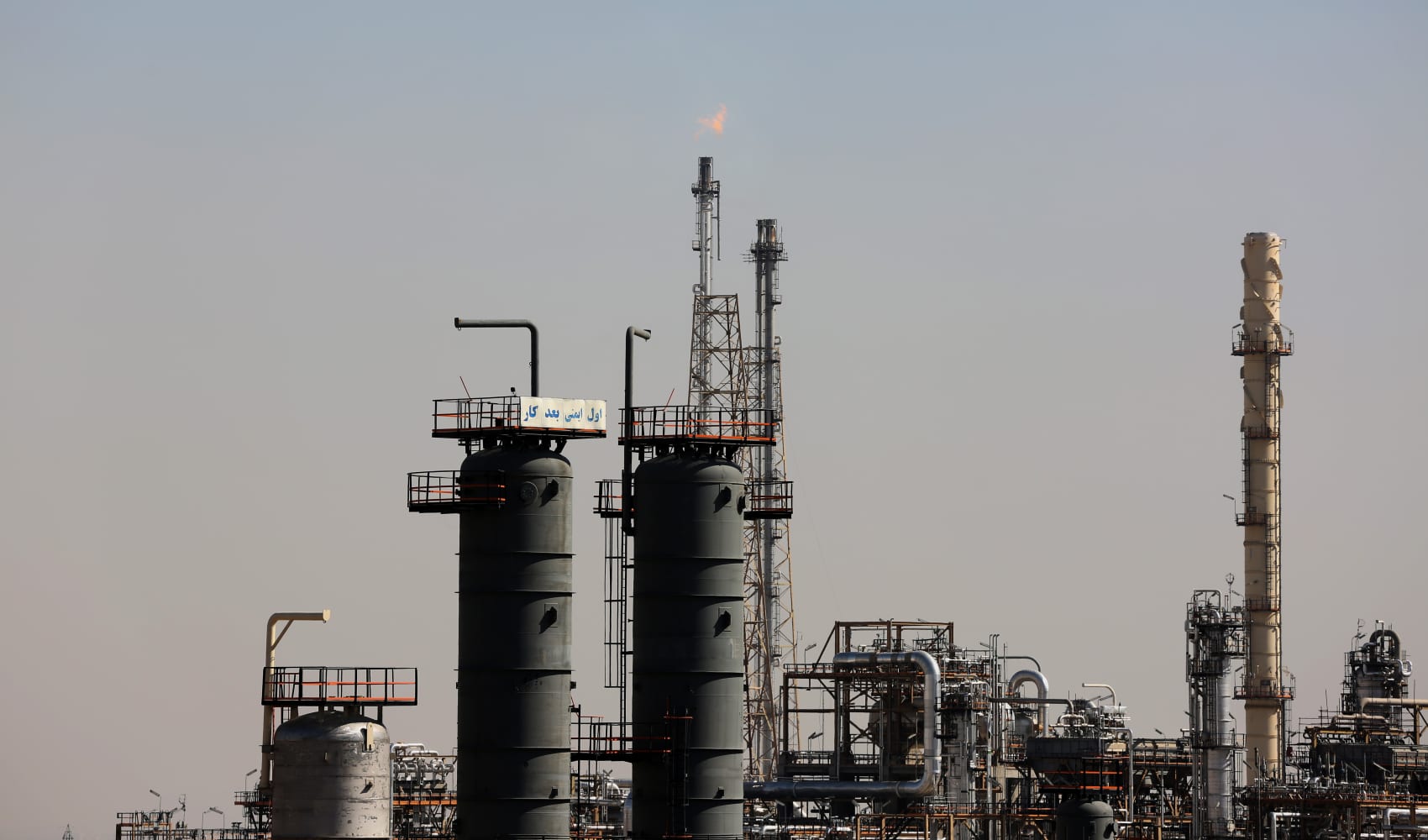
- The euro zone — and the wider European continent — is grappling with a natural gas shortage that's pushing up energy bills for consumers.
- Some governments, notably Spain, Greece and France have started to intervene to offset some of the economic damage for citizens.
LONDON — The volatility in energy prices could outlast the current Covid-related supply issues in the global economy, European Central Bank President Christine Lagarde has said.
The euro zone has been impacted, like many other regions, by disruptions in supply chains brought about by the coronavirus pandemic and subsequent social restrictions. For example, the German auto industry has had to deal with bottlenecks caused by a semiconductor shortage.
However, a surge in energy prices — and its impact on inflation figures — may be a much longer-term issue for the region, Lagarde told CNBC's Annette Weisbach in an exclusive interview Thursday.
Get Philly local news, weather forecasts, sports and entertainment stories to your inbox. Sign up for NBC Philadelphia newsletters.
"Things will fall into place as new sources of supply will be identified," she said, describing the current economic environment as "an adjustment period."
"Energy is going to be a matter that will probably stay with us longer. Because we are transitioning, as well, from fossil industry driven sources of energy ... We aspire to be much less [reliant on] fossil sources," Lagarde said.
Gas crisis
Money Report
The euro zone — and the wider European continent — is grappling with a natural gas shortage that's pushing up energy bills for consumers. Some governments, notably Spain, Greece and France have started to intervene to offset some of the economic damage for citizens.
However, there's quite a lot of uncertainty about the duration of these price pressures in the energy market and what they will ultimately mean for inflation across the 19-member region.
Some industry experts have suggested recent price surges, notably for natural gas, have been accentuated by the EU's new climate policies and are a simple reality of the broader push toward renewables.
The EU's climate chief, Frans Timmermans, has insisted that the price increases are not the bloc's fault. "Only about a fifth of the price increase can be attributed to CO2 prices rising," he told the European Parliament earlier this month. "The others are simply about shortages in the market."
When asked about climate targets and the transition toward renewables, and whether it would be inflationary or deflationary, Lagarde replied: "We are beginning to see some studies and academics who are looking into it and I think the jury is still out."
"My hunch having read some of those is that it is likely to be pushing prices up for a short period of time and probably later on it might have some deflationary impact," she added.
Inflation more stable next year
The ECB's only mandate is to work toward price stability, defined as an inflation target of 2%. Big swings in consumer prices increase the likelihood of monetary action from central banks.
This has been a big theme for ECB watchers as consumer prices have been rising consistently in recent months. In fact, inflation surged to a 10-year-high in August and further spikes are likely in the coming months.
"What is true though is that we have been revising upward many of our projections in the last three quarters. Things have picked up faster and that is true for growth, that is true for inflation, and that is true for employment. So, in a way it is a package of good news because it means that our economies are responding," Lagarde said.
"But of course it induces frictions," she said," those bottlenecks, those supply chains that have been disrupted because of the pandemic and where reinitiating the machine is taking time."
"But in the main of all of that, we hope it will last when it comes to growth, so that activity continues; we hope it will last when it comes to jobs so that employment continues and unemployment goes down; and for prices we think that there will be a return to much more stability in the year to come, because many of the causes of higher prices are temporary," Lagarde told CNBC.
Earlier this month, the ECB estimated an inflation rate of 2.2% at the end of year. This number is then expected to come down to 1.7% and 1.5%, respectively in 2022 and 2023. Revised forecasts are due in December.
"When you look, you know, at what's causing [higher inflation], a lot of it has to do with energy prices. You look back a year ago and prices were rock bottom. They have of course moved up and the difference is explaining a lot of the inflation that unfortunately people are experiencing at the moment, the same goes to VAT impact," Lagarde said Thursday, reiterating the central bank's stance.
Though the ECB has argued that higher inflation is a transitory phenomenon, some experts have said that some of the increases are here to stay.
In this context, the ECB decided earlier this month to slow down its pandemic-era bond purchases. However, Lagarde explained this was not a traditional tapering, but simply a recalibration of policy.
'No idea' on time lag with Fed
Nonetheless, there's a lot of anticipation in the market about what the ECB will do now regarding monetary policy — as well as the Fed. In the United States, Federal Reserve officials reiterated Wednesday that a tapering of bond buying is coming "soon."
The U.S. central bank is facing similar pressures to the ECB, with inflation rates also moving higher and an overall improvement in economic sentiment since the coronavirus pandemic first emerged.
However, Lagarde could not compare the ECB's timeline with the Fed's plan to soon reduce its stimulus.
"I have no idea. I have no idea because we are operating with different programs," she said.






